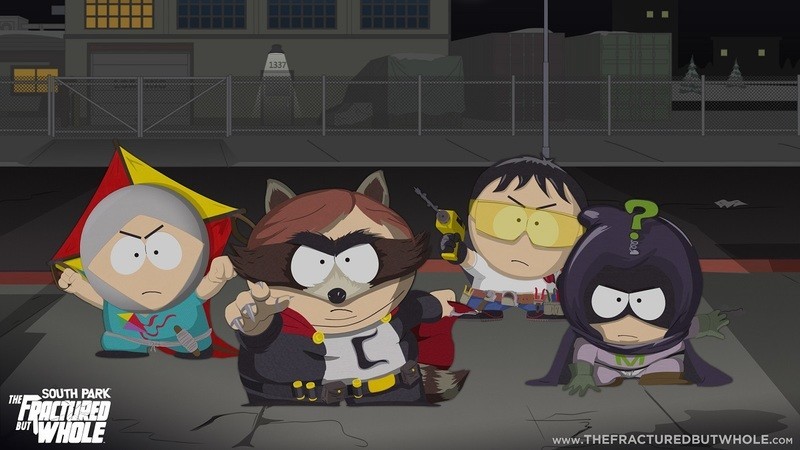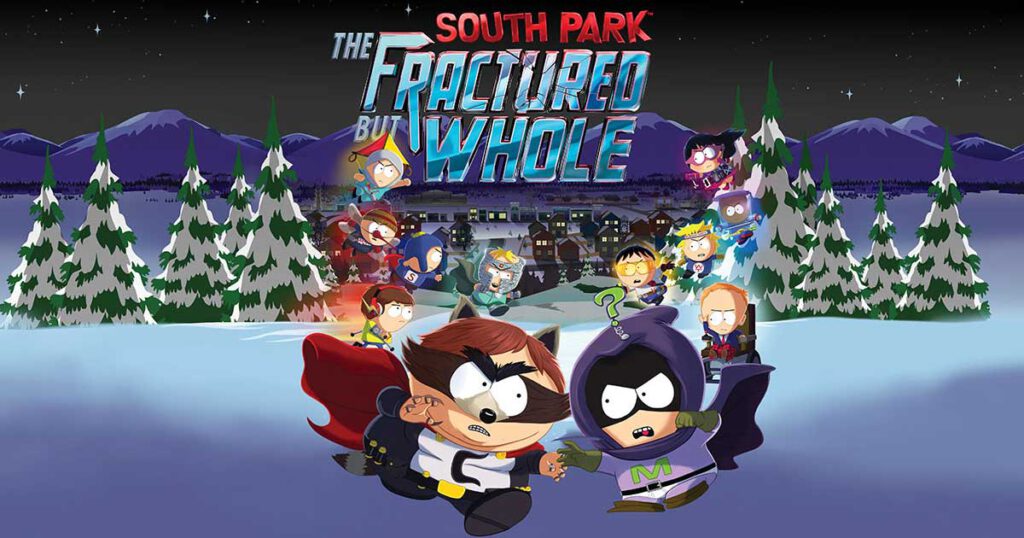Trey Parker and Matt Stone have never played by the traditional rules of animated or live-action television comedy but their particular brand of un-PC writing feels even more unique in 2017. And they know that. With their show still going strong and relatively unafraid of anything (although they’ve taken some heat for not tackling Trump), the timing seems right for the long-delayed release of the second major video game based on the Comedy Central hit, “South Park: The Fractured but Whole,” which hit Playstation 4s and Xbox Ones this month. (If you’re wondering about that title, it was originally called “The Butthole of Time” but stores wouldn’t sell it with that title so the team “got around it,” if you will.)
The game follows up the surprisingly critically and commercially successful “The Stick of Truth” and delivers much of the same blend of “South Park” comedy with elements familiar to fans of role-playing games. Much like the show, which can be very inconsistent, the peaks of “The Fractured but Whole” are very high. It can be riotously funny and undeniably clever, while also delivering as a pure gaming experience, particularly in a very addictive combat gameplay mechanic. The valleys are pretty low too, though. There are some set-pieces that feel unrefined and jokes that hit the floor, and those easily offended should definitely play another game this holiday season. Trey Parker is the main creative voice behind “TFBW” and he’s taking no prisoners.

“The Fractured but Whole” picks up the narrative of the last story, in which the kids of South Park are basically LARP-ing an elaborate story of superheroes and diabolical villains. At times, the game will cleverly make a reference to all of it being in the kids’ imaginations, such as when you’re fighting in the street and everything has to pause for a car coming through like Wayne and Garth playing hockey in “Wayne’s World,” or when adults and other kids look at you funny. And I loved the guy waiting at a bus stop for a bus that “should have been there in December,” a meta-reference to how many times this game has been delayed. But, for the most part, it works straight as a South Park variation on a superhero RPG.
You play as “The New Kid,” a silent observer to the chaos going down in South Park, most of it led by Eric Cartman’s Coon as he battles Butters’ Professor Chaos. The bulk of the game consists of story missions that allow you to carve out your own character with various special powers, costumes, and even elements like weakness and ethnicity. Your back-story even gets developed as the game progresses, although it always comes back to the horrific day that, as Cartman puts it, “your dad f**ked your mom.” A lot was made of the fact that your character’s skin tone changes as you increase the difficulty level—in other words, the game is harder if you’re black than if you’re white—which is clever although, like so much of the game, underdeveloped. The writers play with issues of race and gender throughout, even reaching a point where you gain an advantage in combat if you hear a “microaggression” and attack at just that moment. No matter what gender pronoun you choose, you’ll get attacked by rednecks who “don’t want your kind around here.” When the game feels culturally relevant and satirical, it can be as smart and funny as the show is at its best.
“The Fractured but Whole” frustrates, however, when it feels like Parker and Stone are just aiming wildly without much thought. You fight two giant overweight characters, including a massive, scantily clad black stripper who uses her butt as a weapon, in back to back sequences. Parker and Stone have always walked a fine line between intelligent satire and crude offensiveness, and the game falls on both sides of that line with regularity. Every time I felt like it was gathering momentum in terms of writing, there’d be a “bit” that fell flat and, for some reason, bad writing is even worse when you’re an active participant in moving it along via your controller.

As for gameplay, it’s simple but pretty addictive and well-designed in terms of increasing powers. RPGs often live and die based on the rate at which they increase your abilities through upgrades, skills, new powers, etc.—so as the fights are the same, the way you approach them changes and keeps it from becoming repetitive. “The Fractured but Whole” is very good at this, adding new skill sets and even allies to the skeleton of the game, which is turn-based combat. You will regularly run into enemies in the world of South Park, and, with allies like Kyle’s Human Kite and Stan’s Mosquito, you’ll take turns unleashing special moves on them. It’s an addictive and very well-designed combat system that starts relatively easily but will require greater strategy as the game progresses. While some of the puzzle-solving in “TFBW” feels underdeveloped to the point of afterthought, the combat works, and the game is constantly granting The New Kid new abilities to keep it from getting stale. As for graphics, it looks nearly identical to the show, so it’s not something you’re going to use to show off your PS4 Pro but it’s effective enough—sort of clunky but in a lovable way.
In the end, “South Park: The Fractured But Whole” made me laugh out loud on more than one occasion (Kyle’s awful cousin/nemesis, Human Kite from an Alternate Universe is hysterical, and I’m a sucker for Cartman’s delivery) and never fell into writing or gameplay ruts long enough to completely destroy the experience. It’s an inconsistent game, but it works more often than it doesn’t—and you could kind of replace the word “game” with “show” in that sentence and say exactly the same thing about “South Park” in 2017.












